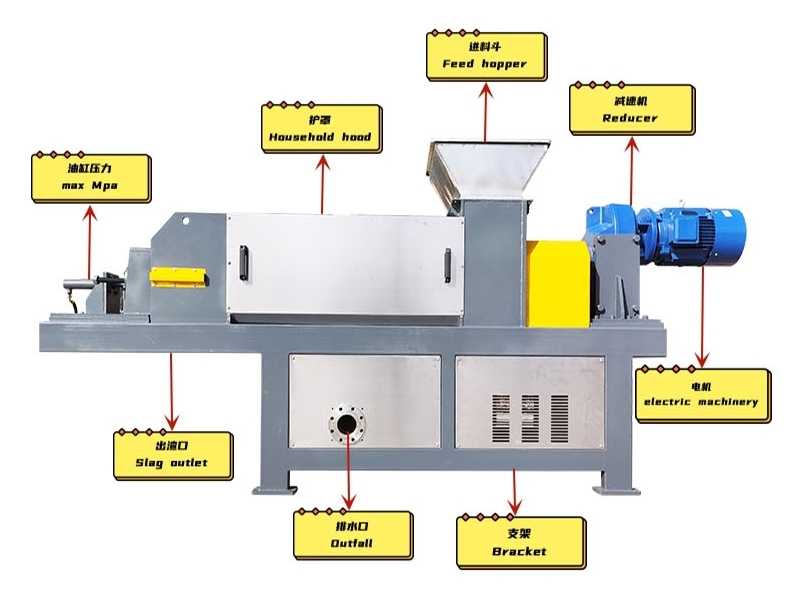
In recent years, the agricultural sector has witnessed a paradigm shift with the introduction of advanced technologies to enhance efficiency and productivity. One such innovation making waves in the industry is the vegetable dewatering machine. This cutting-edge equipment plays a crucial role in the post-harvest processing of vegetables, offering a sustainable solution for moisture removal. This article explores the applications and benefits of vegetable dewatering machines in the agricultural domain.
Post-Harvest Preservation:
Vegetable dewatering machines are employed to remove excess moisture from freshly harvested vegetables. Efficient water extraction prevents the growth of microorganisms, molds, and bacteria, thereby extending the shelf life of the produce. This preservation technique helps reduce post-harvest losses and ensures a longer period for the vegetables to reach consumers in optimal condition.
Enhanced Quality and Nutrient Retention:
By eliminating excess water content, vegetable dewatering machines contribute to the preservation of the nutritional integrity of vegetables. The reduced moisture content enhances the concentration of essential nutrients, ensuring that the produce retains its quality and nutritional value for an extended period. This is particularly significant in regions where access to fresh produce is limited.
Streamlined Processing:
The utilization of vegetable dewatering machines streamlines the overall processing of agricultural produce. This technology enables farmers and food processors to efficiently handle large volumes of vegetables, facilitating faster and more organized post-harvest operations. The streamlined processing not only increases productivity but also allows for better planning and resource utilization.
Waste Reduction and Sustainability:
Vegetable dewatering machines contribute to sustainable agricultural practices by minimizing waste generation. The extraction of excess water reduces the overall weight of the vegetables, leading to lower transportation costs and energy consumption. Additionally, the concentrated nutrients in the dehydrated vegetables can be utilized for various purposes, such as animal feed or organic fertilizers, promoting a closed-loop and eco-friendly system.
Cost-Effective Solution:
Implementing vegetable dewatering machines presents a cost-effective solution for farmers and food processors. The reduction in post-harvest losses, enhanced shelf life, and streamlined processing translate into economic benefits. The initial investment in these machines is offset by long-term gains, making them a viable and sustainable option for businesses operating in the agricultural sector.
Conclusion:
The application of vegetable dewatering machines in the agricultural sector marks a significant advancement in post-harvest processing. By addressing issues related to preservation, quality retention, waste reduction, and cost-effectiveness, these machines contribute to a more sustainable and efficient agricultural supply chain. As technology continues to evolve, the integration of innovative solutions like vegetable dewatering machines is poised to play a pivotal role in shaping the future of agriculture.




If your company wants to establish a business relationship with us, please briefly describe the cooperation intention and send an email to:chuantaiscrewpress@gmail.com























































































![[list:title]](/static/upload/image/20240528/1716877114510915.jpg)